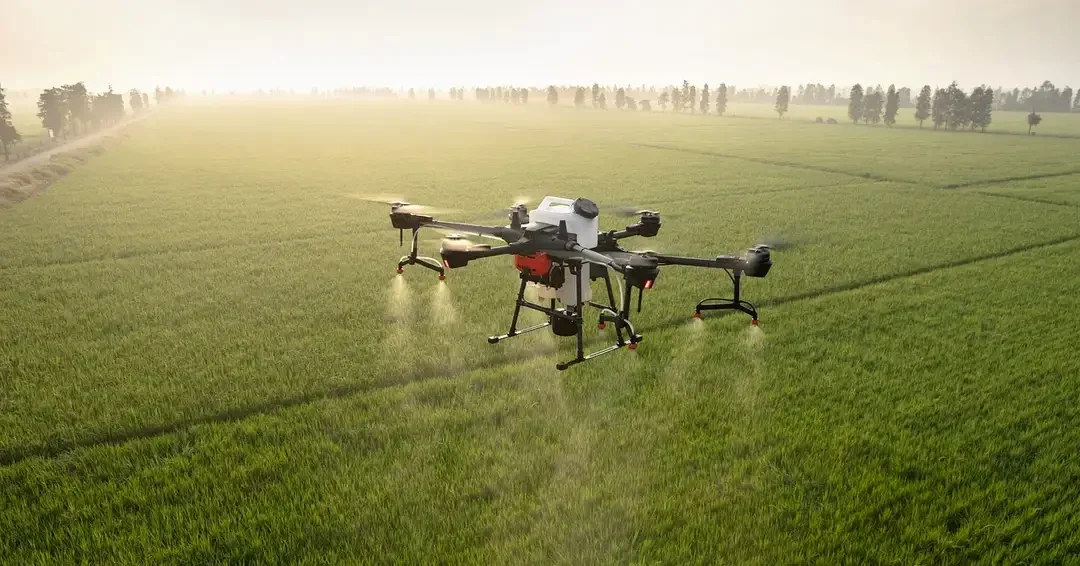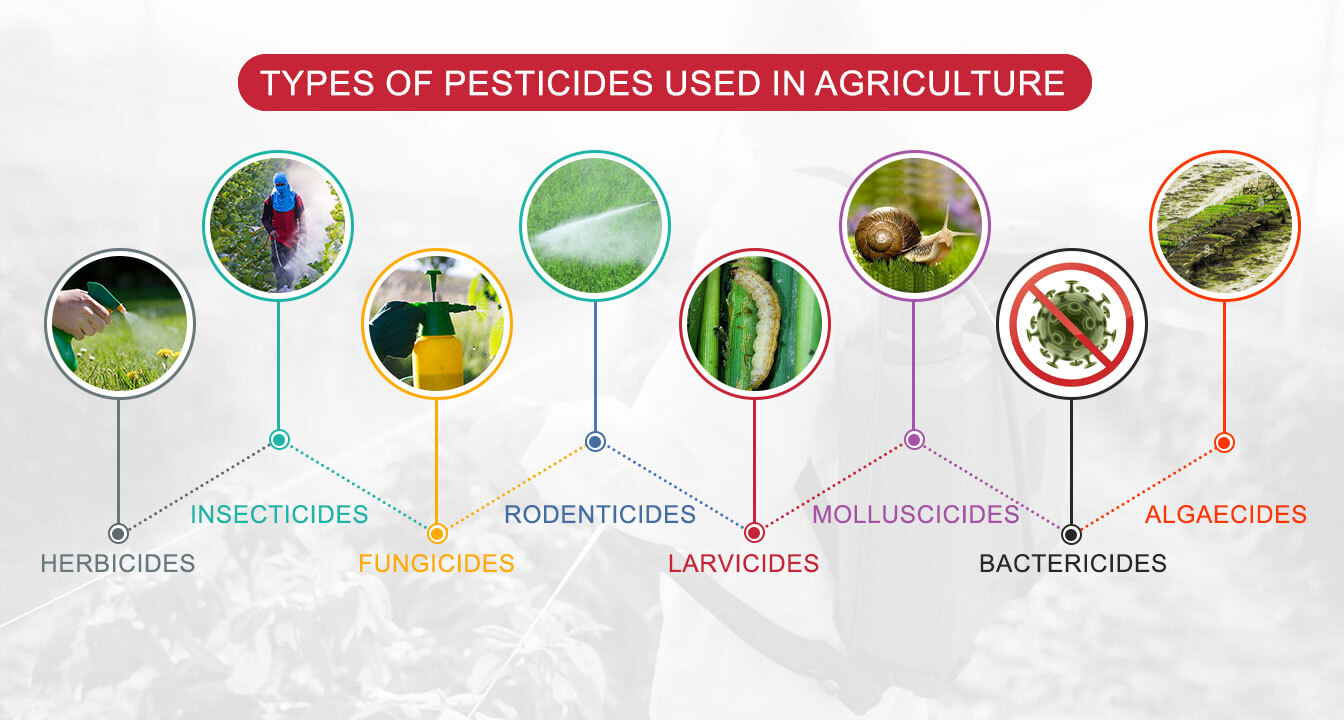
Pesticides
Pesticide is a chemical-based substance to repel, control, and kill animal life or plant life, known as pests. They include a range of biological agents such as disinfectants, antimicrobials, bacteria, and viruses to control agricultural pests that can damage crops and livestock. While pests can involve fungi, rodents, slugs, insects, weeds, snails, bird mites, etc.
Pesticides are the greatest innovation that saves farmers hard-earned productivity and efforts while cultivating. Moreover, they help protect crops and land from uninvited organisms or plants that leach all the nutrients of crops.
Pesticides help control pests that can cause plant-based diseases
It avoids the inhibition of organisms that can cause human/livestock diseases.
It helps control organisms that can disrupt human activities and structures.
Types of Pesticides
Eight Different Types of Pesticides Used in Agriculture Commonly:
Herbicides: Herbicides prevent the growth of weeds that can leach the nutrients required by the crops for growing.
Insecticides: Insecticides attack the nervous system of insects to restrict their inhibition or breeding.
Fungicides: Fungicides help prevent fungi’s growth and help remove them completely. Also, they can easily decay in the soil in the presence of air.
Rodenticides: They are chemical substances used to control the inhabitation of rodents such as rats, mice, gophers, and even fish, birds, and mammals that can destroy crops.
Larvicides: Larvicides are pesticides that control or restrict larvae or mosquito growth or restart their breeding to prevent vector-borne diseases like malaria.
Molluscicides: Pesticides that typically restrict the inhabitation or spreading of molluscs such as snails, slugs and others.
Bactericides: Pesticides kill or restrict the spreading of harmful bacteria throughout crops and livestock.
Algaecides: These pesticides kill or restrict the growth of algae for better crop yield.

Consultations for prospective farming
Farming has always been a challenging endeavor, with decisions often based on experience, inherited knowledge, or recommendations from fellow farmers.
Get Consultation